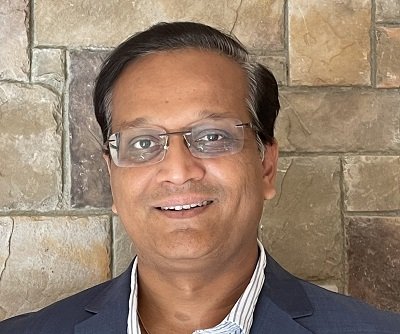"Health industry will experience biggest tech advancements in next five years"
September 18, 2021 | Saturday | Views
The Indian healthcare sector has been in a dire need of innovative, sustainable and scalable healthcare technologies to improve lives, owing to the vast inequalities in healthcare distribution, lack of trained healthcare clinicians and related infrastructure gaps, further compounded by the low allocation of government funds. As an active product engineering and reliability engineering contributor to this industry, Pune-based AFour Technologies is focusing on catering to differentiated needs of the providers / medical professionals with out-of-the-box care practice ideas. Subodh Parulekar, CEO & CO-Founder, AFour Technologies, Pune spoke to BioSpectrum about the company’s contribution to the digital healthcare space. Edited excerpts-
How is Afour driving digital transformation in healthcare companies?
AFour is facilitating the digital transformation efforts of organisations ranging from the ones building medical robotic systems to those involved in the democratisation of the prescription drug market. Even as digital transformation experiences significant acceleration during the pandemic, AFour is helping its partners build intelligent healthcare solutions like:
- Managing appointments and logistics to conduct patient vaccination services for covid and flu.
- Solutions to enable remote healthcare services where doctors and patients can maintain prescriptions online, search and make online purchases of medicines from drugstores that are near the patient, at a reasonable cost.
- A platform for clinical trial transparency, disclosure compliance and patient engagement.
What new-gen healthcare companies/ startups should deploy to emerge successfully?
The digitalisation wave in healthcare has resulted in customer-centric solutions and practices. New-gen healthcare companies/startups must aim at simplifying and enhancing the customer experience. Moreover, COVID-19 has caused a lot of disruption in the healthcare industry. Due to lockdowns, in-person engagements of patients with medical practitioners has been a challenge. Healthcare companies have realised the importance of digitalisation and are aggressively working towards building solutions that constitute emerging trends like predictive health analytics, virtual health consultation and telemedicine. New technologies and platforms deployed must push the frontiers of healthcare delivery, building on the 'anytime, anywhere' healthcare access for consumers, by leveraging cloud-based AI, ML and data science solutions.
What has initiated this change?
The recent years have witnessed outbreaks of several infectious diseases like SARS and COVID-19, the latter stress-testing the healthcare industry due to order of magnitude higher patient numbers and lower response times. The need for patients to receive and consume healthcare in a remote setting in the fastest possible manner, the steep decline in in-person consultations due to lockdowns and the need to share data between disparate systems, have triggered a rapid evolution of digitalisation and innovation in the healthcare industry.
Where do you see the healthcare industry in the next five years and what is the contribution of software product engineering companies in helping companies adapt to this change?
The healthcare industry will experience one of the biggest technological advancements in the next five years. We will see more innovative ways in which consumers buy, receive, consume and pay for healthcare services. Innovative business models, digital platforms and tools will pervade and gain wider adoption across the healthcare ecosystem. As telemedicine and remote delivery of healthcare services become mainstream, software product engineering companies will increasingly use solutions that encompass IoT, wearables, cloud and mobile technologies. Robotic-assisted surgeries will become more prevalent. Predictive health analytics solutions based on AI, ML, Data Analytics, for early detection and prevention of health issues and diseases, will become an integral part of healthcare systems. We also see AR, VR and 5G playing a critical role in telehealth rollout.
Any specific expectations from the government?
- Increased investment in public health including healthcare systems and infrastructure not only at the country level but also keeping global health in perspective.
- Increase funding in biotechnology, pharma and epidemiology.
- Investing in tools and technologies for better disease surveillance and emergency preparedness for pandemics.
- Streamlining the distribution of vaccines and medicines, expanding telehealth services and focusing on digital health technologies to ensure healthcare is available to everyone with the quickest turnaround.
- Last but not the least, enforce healthcare compliance policies to protect the confidentiality of patient health information.
Dr Manbeena Chawla
(manbeena.chawla@mmactiv.com)









